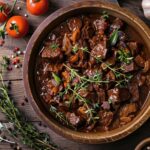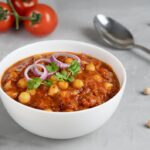Inflammation is a natural response by the body’s immune system to injury or infection, but chronic inflammation can lead to various health issues, including heart disease, arthritis, and certain cancers. Diet plays a crucial role in managing inflammation, and avoiding certain foods can help reduce inflammation and improve overall health. Here are 20 foods South Africans should avoid to decrease inflammation.
1. Sugar and High-Fructose Corn Syrup
Consuming high amounts of sugar and high-fructose corn syrup can increase inflammation in the body. These sweeteners are commonly found in soft drinks, candies, pastries, and many processed foods.
2. Refined Carbohydrates
Refined carbs, such as white bread, pasta, and pastries, can cause spikes in blood sugar levels, which may lead to increased inflammation. Opt for whole grains instead.
3. Trans Fats
Trans fats, found in many processed and fried foods, are known to increase inflammation and contribute to heart disease. Avoid margarine, shortening, and hydrogenated oils.
4. Processed Meats
Processed meats like bacon, sausages, and deli meats contain preservatives and high levels of saturated fats, which can promote inflammation.
5. Red Meat
High consumption of red meat, particularly when it’s processed or grilled at high temperatures, can increase inflammation due to the presence of saturated fats and advanced glycation end products (AGEs).
6. Alcohol
Excessive alcohol intake can increase inflammation and contribute to liver disease and other health issues. Moderate your consumption or avoid it altogether.
7. Fried Foods
Fried foods, such as fried chicken, French fries, and potato chips, are high in unhealthy fats and can increase inflammation. Opt for baked or grilled alternatives.
8. Sugary Beverages
Soft drinks, energy drinks, and other sugary beverages can cause inflammation and increase the risk of chronic diseases. Choose water, herbal teas, or natural fruit juices instead.
9. Artificial Sweeteners
Artificial sweeteners like aspartame and sucralose can disrupt gut bacteria and may lead to increased inflammation. Use natural sweeteners like honey or stevia in moderation.
10. Dairy Products
Some people are sensitive to dairy, which can lead to inflammation, particularly in those with lactose intolerance or dairy allergies. Consider non-dairy alternatives such as almond milk or coconut yogurt.
11. Gluten-Containing Foods
For individuals with gluten sensitivity or celiac disease, consuming gluten can trigger inflammation. Avoid foods containing wheat, barley, and rye.
12. Omega-6 Fatty Acids
While omega-6 fatty acids are essential, consuming them in excess, especially from processed vegetable oils like corn oil, can promote inflammation. Balance your diet with omega-3 rich foods.
13. Additives and Preservatives
Many processed foods contain additives and preservatives that can trigger inflammation. Read labels carefully and opt for fresh, whole foods whenever possible.
14. High-Sodium Foods
High sodium intake, often from processed and packaged foods, can increase blood pressure and inflammation. Reduce your consumption of canned soups, processed meats, and salty snacks.
15. Fast Food
Fast food is typically high in unhealthy fats, sugars, and sodium, all of which can contribute to inflammation. Cook at home using fresh ingredients to control what goes into your meals.
16. MSG (Monosodium Glutamate)
MSG, a flavor enhancer found in many processed foods and restaurant meals, can trigger inflammation and other adverse reactions in some people.
17. Certain Nightshade Vegetables
Some individuals with inflammatory conditions like arthritis may find that nightshade vegetables (tomatoes, peppers, eggplants, and potatoes) exacerbate their symptoms. Monitor your symptoms and adjust your diet accordingly.
18. Processed Snacks
Processed snacks like crackers, chips, and microwave popcorn often contain unhealthy fats, sugars, and additives that can promote inflammation.
19. Certain Dairy Desserts
Ice cream, cheese spreads, and other dairy desserts are often high in sugar and saturated fats, contributing to inflammation. Opt for healthier dessert options like fruit or yogurt.
20. Gluten-Free Packaged Foods
While gluten-free options are necessary for those with gluten intolerance, many gluten-free packaged foods are highly processed and contain additives that can increase inflammation. Choose whole, naturally gluten-free foods like fruits, vegetables, and lean proteins.
Reducing inflammation through diet involves avoiding foods that can trigger inflammatory responses and choosing whole, nutrient-dense alternatives. By making mindful food choices, South Africans can manage inflammation and promote overall health and well-being. Embrace a diet rich in fresh fruits, vegetables, lean proteins, and healthy fats to help decrease inflammation and support a healthier lifestyle.








